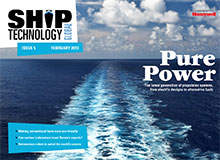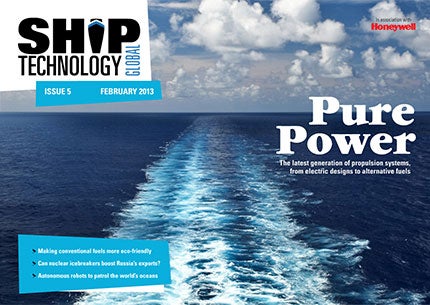
The need to balance speed, power and economy has led to rapid innovation in marine propulsion over the last few years, resulting in a host of new engine designs. We compare leading fuel engines with hybrid designs, and ask if the future could lie in electrically powered and propelled ships. We also explore research into environmentally friendly fuels and what it could mean for shipping operators in terms of technological capabilities and economic realities.
Could there soon be an army of autonomous robots patrolling the world’s oceans? As innovators in the US strive to make this a reality, we ask the creators of Wave Glider how real-time information gathering robots could optimise sea routes and improve communication. We also take a look at Atomflot’s expanding nuclear icebreaker fleet and how it could boost Russia’s coal export prospects.
Click here to read the latest issue.
In this issue
Sail of the Century
The need for operationally dependable ships has led to rapid innovation in marine propulsion. Sarah Blackman compares the latest generation of ship engine designs that are expected to blow the last generation out of the water.
Read the full article.
Future Fuels
Legislation requiring ships at sea to reduce emissions is a key driver of cruise lines’ efforts to lower their environmental impact. Jamie Sweeting, Royal Caribbean International, investigates new research into making current fuels more environmentally friendly.
Read the full article.
How well do you really know your competitors?
Access the most comprehensive Company Profiles on the market, powered by GlobalData. Save hours of research. Gain competitive edge.

Thank you!
Your download email will arrive shortly
Not ready to buy yet? Download a free sample
We are confident about the unique quality of our Company Profiles. However, we want you to make the most beneficial decision for your business, so we offer a free sample that you can download by submitting the below form
By GlobalDataPlug the Gap
As the cruise industry looks to embrace a greener future Francesco Balbi, environmental coordinator at MSC Cruises, discusses the latest developments in cold ironing.
Read the full article.
Wave Gliders
Could there soon be an army of autonomous robots patrolling the world’s oceans? Rowan Watt-Pringle discovers how real-time information gathering robots could optimise sea routes and improve communication.
Read the full article.
Breaking the Ice
Atomflot’s expanding nuclear icebreaker fleet brings with it a number of industrial and geopolitical implications. Chris Lo asks could the opening of new shipping routes boost Russia’s coal exports.
Read the full article.
Next issue preview
The renovation of Carnival Destiny into Carnival sunshine marks the cruise industry’s most ambitious refurbishment project. We profile the project and ask whether revitalisation programmes on this scale are an indication of things to come.
The General Lighthouse Authorities of the UK and Ireland have deployed eLoran radio navigation technology to back up satnav systems in the English Channel, the first such installation in the world. With GPS and Galileo systems susceptible to disruption, we profile how this extra layer of positioning assistance could improve navigational safety in one of the world’s busiest shipping corridors, and explore the potential for extensive commercial adoption of eLoran.
We also profile the development of a new CO2-based ‘electrofuel’ by Det Norske Veritas and Ginko Bioworks to find out if it could be the eco-friendly answer she shipping industry has been waiting for. Moreover, we look at the European Commission’s investigation into whether Portugal has broken EU competition rules by providing public subsidies to its biggest ailing port, and ask which other EU members are considering shipyard privatisation as a potential means to stay afloat.
The next issue will be out in April. Sign up for your free subscription to get each future issue delivered directly to your inbox.
Digital magazine FAQ
The digital magazine is viewable on any computer with Flash Player installed. It is also viewable on mobile devices, iPhones and iPads, although some features and videos may be disabled.




